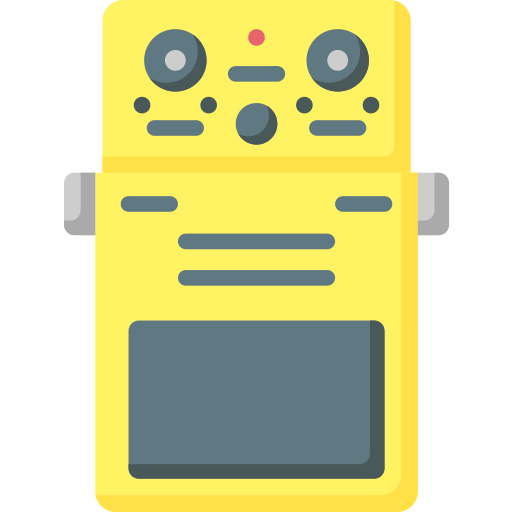Hey everyone, I’m a bit out of the loop with these pedals, and I’m trying to understand the ways people are using them.
I understand what they do, I’m just wondering why someone would use a pedal instead of just setting on an amp that has the gain or tone shaping characteristics that they’re looking for.
In particular, because the pedal then (presumably) gets plugged into the amps preamp section anyway, which is going to colour the sound again. So then, would the optimum use be to plug into a really transparent, clean amp?
To be clear, I’m talking about pedals like the UA Ruby, Zvex box of rock, Benson Preamp. Not so much about Helix, ToneX, etc. I know the latter are more like an all-in-one recording solution, so you can DI and still get great sounds at home, but the former? I’m not so sure what they’re best used for!
The major factors are price, size/weight, a flexibility. You would only need to plug them into a poweramp and CAB if the pedal doesn’t have CAB sim internally. You could plug in headphones (you’re in an apartment and/or it’s late and/or there are infants sleeping), or FRFR/PA speakers/monitors (I have plugged my Mustang Micro into my computer speakers and it sounds fine). A lot of them have different cab simulations or support loading custom IRs, so you can essentially change out speakers on the fly. So both cheaper and easier than lugging an equivalent set of real amps and cabs to a gig, or even recording at home. You mention DI as a differentiator between AIAB pedals and Helix/ToneX. But pedals like Strymon Iridium, Walrus ACS-1, and the new TC Electronic Ampworx lines all do DI too.
“… pedals like Strymon Iridium, Walrus ACS-1, and the new TC Electronic Ampworx lines all do DI too.”
In fact, the Strymon Iridium is ONLY for DI, there’s no output suitable for plugging into an amp - it’s a line-level signal. The manual specifically says not to connect it to a guitar amp.
This to me is its strength! I already have amps, but if I can avoid hauling an amp to a gig or micing an amp if I’m recording, it’s a win for me. My tone is more consistent than with a miced amp and sound engineers always seem happier when I just ask for a place to plug in rather than needing a mic.
I’ve been very happy with the tones I’ve gotten from the Iridium, to the point where I barely miss an amp, and that’s mostly because I don’t have a nice spring reverb. Once I get a reverb pedal I’m happy with, I’ll likely sell two of my 4 amps.
In fact, the Strymon Iridium is ONLY for DI, there’s no output suitable for plugging into an amp - it’s a line-level signal. The manual specifically says not to connect it to a guitar amp.
Ah, TIL, thanks! Yeah going back to when I rekindled my hobby with what I know now, I probably would have gone with an Iridium first. I’m quite happy with my Orange Crush 35rt, having 9 amp+cab combinations in the Iridium would have given me more options to see why styles I like best.
So I don’t have one of the pedals you mentioned, but I use an EQD speaker cranker which is designed to mimic an amp on the edge of breakup as a “dirty channel” and a Two Notes Torpedo cab to do cab-sim and DI into Logic. I don’t use an amp.
For me it’s combination of size+price+noise level. First, I’d drive my wife and neighbors nuts if I was playing out of an amp at a usable volume every time I play guitar. I use a lot of high gain pedals and make a lot of noise in general. I don’t play live or with other musicians so I don’t really need an amp that weighs 30-50lbs even though I have space. I have a Orange Micro Terror but I don’t use it because I don’t see the need to mic it up when I can accomplish nearly the same sound with the Torpedo cab in a quarter of the space.
Hope that gives some context/insight.
Thanks for the replies, so far. I definitely understand the appeal of amp-sims to use at home/in the studio, I use them for that myself.
I should say, I’m more interested in pedals such as the Benson Preamp, Zvex box of rock, JHS colourbox (?), EQD Acapulco Gold, etc. AFAIK, theyre supposed to be used as gain pedals, not amp replacement/sim pedals.
So what I’m specifically interested in, is in which cases it’s preferable to use one of these pedals, when volume is not an issue. When you have something like a Roland Jazz Chorus that you want to add some gain to? I imagine you wouldn’t want to use them with a Bassman or Marshall, etc.
Yeah if the pedal doesn’t have a CAB sim then it’s just putting the preamp section (and maybe tone stack) of an amp into a pedal, and you can arrange the rest of your signal change around it the same as you would like it’s the front of an amp. You can stack it in any order with other gain pedals, or you can go front of amp to stack the gain stages of both. Some amps’ FX loop are line level, and some are instrument level. So some of these preamp pedals might not work going directly into the FX loop return. You could even use them as underdrive, to quiet an amp that is otherwise too loud for the situation (there’s a recent TPS show episode on this posted in [email protected])
One thing you might end with is a setup that allows you to have more or less the same sound regardless of the amp you’ll find on the stage; i had a friend that did it because of that… he’d set the amps flat when they had no fx loop and he ran his rig in front



